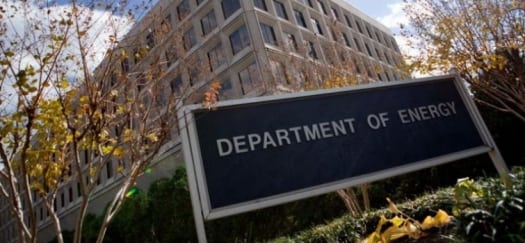
The U.S. Department of Energy is seeking partial dismissal of two protests filed with the Government Accountability Office by losing bidders for the recently awarded $4.7 billion contract for liquid waste management at the Savannah River Site in South Carolina.
The Energy Department on Oct. 12 awarded the new work to Savannah River EcoManagement, a joint venture comprised of BWXT Technical Services Group, Bechtel National, and Honeywell International. The losing teams, one led by AECOM and the other by Fluor, filed protests with the GAO on Oct. 31.
An informed source told Weapons Complex Monitor on Thursday that DOE has since filed a motion for “partial dismissal” of the protests. The source declined to discuss DOE’s reasoning in its filing, and officials with the department did not respond to requests for comment.
The source, who would only discuss procedural matters in the dispute, also said both losing parties in the contract award case have made supplemental filings with the GAO. A search on the agency website indicated that both Fluor Westinghouse Liquid Waste Services as well as Savannah River Technology & Remediation made supplemental filings on Nov. 6.
The supplemental filings, like the original protest documents, have not been made public. The new documents evidently involve additional information that the losing bidders have gleaned since filing the initial protest.
AECOM Chief Operating Officer Randall Wotring said during an earnings call this week that his company’s protests have a good chance of success and AECOM considers the competition still open.
Savannah River Technology & Remediation consists of AECOM and CH2M, which are partnered with BWXT and Bechtel on current SRS liquid waste prime Savannah River Remediation. The work involves overseeing existing radioactive facilities for storage, treatment, and disposal of about 35 million gallons of Cold War-era liquid waste at Savannah River.
In weighing protests, the GAO considers whether federal agencies have complied with statutes and regulations governing procurements.
The source noted that the GAO is in the middle of a busy 30-day period that ensues immediately after a protest is filed. During this period the agency can dismiss protests that are not filed on time or are outside of the GAO’s jurisdiction; any party to the case can ask for dismissal of a protest.
Day 30 marks the deadline for the GAO to respond to the protest. If the case is still alive after 30 days, DOE attorneys will be expected to file a detailed report on the disputed contract selection with the GAO, the source said.
By the 40th day, the protesters will be required to respond to the DOE report; failure to do so would result in dismissal of their case. The Government Accountability Office has a number of options between day 40 and 100. This includes everything from holding a hearing to conducting alternative dispute resolution. Day 100 is the deadline for rulings on protests, though the agency seeks to resolve them earlier.
Given that the two losing parties made supplemental filings with GAO on Nov. 6, it would extend GAO’s 100-day deadline to Feb. 14. The original deadline, based on the initial Oct. 31 filing, would have been Feb. 8, according to the GAO website.